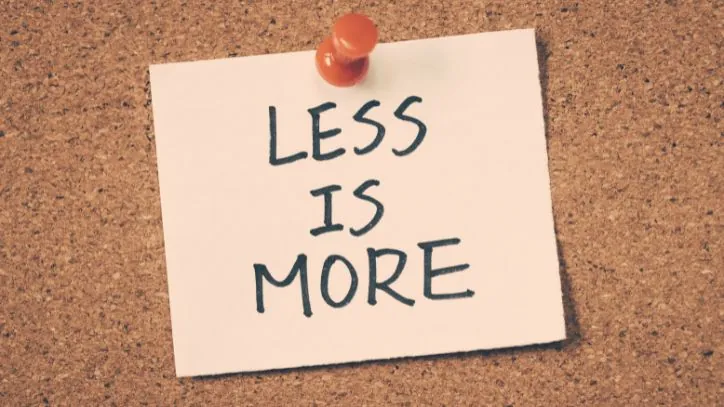Blog
How to Reduce Your Sugar Intake—and Why It Matters

Decades ago, in a time when eating healthy wasn’t the societal norm, my mother took a firm stand against sugar in our household. If we wanted something sweet, she would offer us an apple or an orange instead of cookies or candy. This wasn’t just a matter of personal preference; it was a carefully thought-out strategy, driven largely by her understanding of our health. Both my older brother and I suffered from allergies and asthma, and through her research, Mom discovered that reducing sugar helped alleviate our symptoms. Long before the Internet provided a treasure trove of information on the dangers of refined sugar, my mother was engrossed in books that outlined the negative impacts of excessive sugar consumption.
Fast forward to today, and sugar is pervasive. It’s hidden in everything from your morning coffee to seemingly healthy snacks like granola bars and fruit-flavored yogurts. While sugar can bring a moment of pleasure, the reality is that too much of it can take a serious toll on your health. According to the American Heart Association, the average American consumes about 17 teaspoons of added sugar daily—far exceeding their recommended limits of 6 teaspoons for women and 9 for men. Cutting back on sugar is not just about willpower; it involves understanding the important reasons behind such changes and making informed, sustainable choices.
Why Reducing Sugar Intake Is Important
The decision to cut back on sugar isn’t just about aesthetics; it plays a crucial role in overall health. Excessive sugar consumption isn’t just a contributor to weight gain—it’s like a slow leak that undermines your well-being. Overconsumption has been linked to a plethora of health conditions, including but not limited to type 2 diabetes, cardiovascular diseases, fatty liver disease, and systemic inflammation, which can disrupt emotional well-being and energy levels. According to Dr. Lisa Young, a registered dietitian and author of Finally Full, Finally Slim, “Sugar provides empty calories.” It doesn’t offer nutritional value. When you ingest too much sugar, it displaces healthier options that your body requires, contributing to inadequate nutrient intake.
The impact of sugar extends beyond physical health. It can act like a seesaw on your mental state. The quick spike in blood sugar might initially feel like a burst of energy, but that rapid increase is often followed by a crash that leaves you feeling drained and yearning for more. This ongoing cycle can put undue stress on your metabolism and increase insulin resistance. There’s also emerging evidence suggesting a correlation between high-sugar diets and a heightened risk of dental problems and cognitive decline (National Institute of Health Library). The stakes are incredibly high—reducing sugar intake isn’t just a trend; it’s a critical investment in your health.

Nutritionists are almost unanimously clear on this issue: “Cutting back on sugar isn’t about deprivation; it’s about reclaiming control over your health and energy levels,” state a panel of experts from the Academy of Nutrition and Dietetics. The focus here is not about eliminating sweetness but about rethinking the quantity and sources of sugar in your life.
How to Cut Back on Sugar: Practical Steps
If you’re prepared to reduce your sugar intake, you don’t have to go cold turkey. Here are several actionable strategies that can help you lower your sugar consumption without feeling deprived:
1. Read Labels Like a Detective
Added sugars often go incognito under various names and aliases. Terms such as high-fructose corn syrup, cane juice, or anything ending in “-ose” (such as glucose, maltose, etc.) are all signs of hidden sugars. When checking nutrition labels, aim for products with less than 5 grams of added sugar per serving. A helpful tip is to remember that ingredients are listed in descending order by weight; if sugar is near the top of the list, that’s a significant red flag.
2. Swap Sugary Drinks for Smarter Sips
Soda, sweetened iced tea, and energy drinks are notorious for their high sugar content, with some containing more than 10 teaspoons of sugar per serving. Instead of these sugar-laden beverages, opt for water infused with lemon or cucumber, unsweetened herbal tea, or sparkling water with a hint of real fruit juice. The shift may take a little time, but your taste buds will get accustomed to the new, less sugary options faster than you think.
3. Tame Your Sweet Tooth Naturally
If you’re craving something sweet, consider reaching for whole fruits like berries or apples. These natural sweets come packed with fiber, vitamins, and antioxidants—key components that refined sugars lack. A small square of dark chocolate (70% cocoa or higher) can also provide a rich, satisfying flavor without leading to a sugar overload. Reflecting my childhood norms, I often prefer a piece of fruit over a cookie as my go-to snack.
4. Cook More at Home
Many processed foods, including sauces, dressings, and even what we might consider savory snacks, often contain an unexpectedly high amount of sugar. By preparing meals from scratch, you gain full control over what goes into your food. Experiment with spices and herbs as flavorful substitutes for sugary marinades. Additionally, home-cooked meals are often more economical than their pre-packaged counterparts.
5. Retrain Your Palate Gradually
You don’t have to drastically alter your sugar habits overnight. Instead, work on gradually reducing sugar in your daily routines. Start by cutting sugar in your coffee or breakfast cereal by half for a week, then reduce it again. Studies indicate that it takes only a few weeks for your taste buds to adapt, leading to a decreased craving for sugar. You’ll find that what once seemed delightful may soon feel overwhelmingly sweet.
6. Watch the “Healthy” Traps
Be cautious of products that market themselves as healthy but pack an unintentional sugar punch. For example, granola bars, flavored yogurts, and smoothies often contain 20 grams of sugar or more per serving. A better alternative is to opt for plain Greek yogurt topped with fresh fruit. You can also consider making your own smoothies without added sweeteners, using whole fruits instead.
7. Plan for Cravings
Emotions such as stress or boredom can often trigger binge-eating behaviors, particularly related to sugar. This makes it essential to have low-sugar snacks readily available—think nuts, hard-boiled eggs, or veggie sticks with hummus. Engaging in a brisk walk or sipping a glass of water can also effectively short-circuit those sugar cravings.
The Payoff—and a Nutritionist’s Take
The advantages of cutting back on sugar can be both rapid and far-reaching. Within just a few days, you may notice a marked improvement in your energy levels and a reduction in cravings. Over weeks, you could see a decrease in your risk factors associated with chronic diseases, and your waistline may benefit, too. It’s essential to remember that the journey is not about achieving perfection; small changes can accumulate into significant achievements.
As reinforced by nutritionists from the Academy of Nutrition and Dietetics, “Cutting back on sugar isn’t about deprivation; it’s about regaining control over your health and energy levels.” Approaching this change shouldn’t feel like being punished; instead, think of it as an opportunity for empowerment.
Additional Insights and Long-Term Strategies
In addition to the strategies already mentioned, understanding the broader picture can help sustain long-term reduced sugar intake. Educating yourself further on nutrition and continuing to develop a healthy relationship with food are both crucial. Here are more tips to solidify this new habit:
Monitor Your Time Spent on Electronics
Numerous studies suggest that excessive screen time can influence eating behaviors, often leading to mindless munching on sugary snacks. By being conscious of your time spent on devices, you may find it easier to take breaks for meals or snacks. This can aid in maintaining awareness and presence during eating, again helping reduce sugar consumption.
Join a Community or Support Group
Sometimes the journey is easier with support. Whether it’s joining a local nutrition group, an online forum, or simply finding a friend with similar goals, connecting with others can provide motivation and accountability. Sharing tips, recipes, and struggles can deepen your understanding of food and empower each other to make healthier choices.
Engage in Mindfulness Practices
Mindfulness can transform your approach to eating entirely. This practice encourages you to pay full attention to the experience of eating—thinking about the flavors, textures, and sensations. It can help you recognize physical hunger versus emotional eating, making it easier to choose more nourishing options instead of reaching for sugary snacks out of habit or boredom.
Set Realistic Goals
Embarking on a journey to reduce sugar intake shouldn’t feel like climbing a mountain in one leap. Set attainable, measurable goals like reducing sugar gradually from your diet. Perhaps commit to a specific number of sugar-free days per week or track daily sugar intake until you reach a level you’re comfortable with. Be forgiving with yourself; it’s a gradual process.
Celebrate Small Wins
Take the time to appreciate your progress, no matter how small. Celebrate those victories, like choosing fruit over cookies or opting for water instead of soda. Recognizing these accomplishments can boost your confidence and reinforce your commitment to a healthier lifestyle.
Understanding the Science Behind Sugar
The body treats sugar as a quick source of energy, leading you to reach for sweets during times of physical exertion or fatigue. However, the rapid processing of sugar leads to spikes in blood glucose levels. Over time, excessive sugar intake can lead to chronic conditions like diabetes, which affects millions of people worldwide (CDC). Understanding this direct relationship between sugar and health conditions can drive home the importance of what you consume.
Conclusion: Empowering Your Health Journey
Reducing sugar intake is more than just a health recommendation; it’s a lifestyle change that empowers you. It requires a commitment to understanding how your food choices affect your health. From reading labels and cooking from scratch to retraining your palate and practicing mindfulness, these practical steps can lead you to a healthier, more vibrant life.
The journey may seem overwhelming at first, but remember that small, consistent changes can lead to significant impacts. The age-old wisdom of my mother still rings true today: by making informed choices, you take charge of your health and cultivate a better relationship with food. Not only will you improve your physical well-being, but you’ll also elevate your overall life quality, embracing a sweetness that doesn’t come from refined sugar but from living fully and healthily.
By Julie Murphree, Arizona Farm Bureau Director of Strategic Communications


















